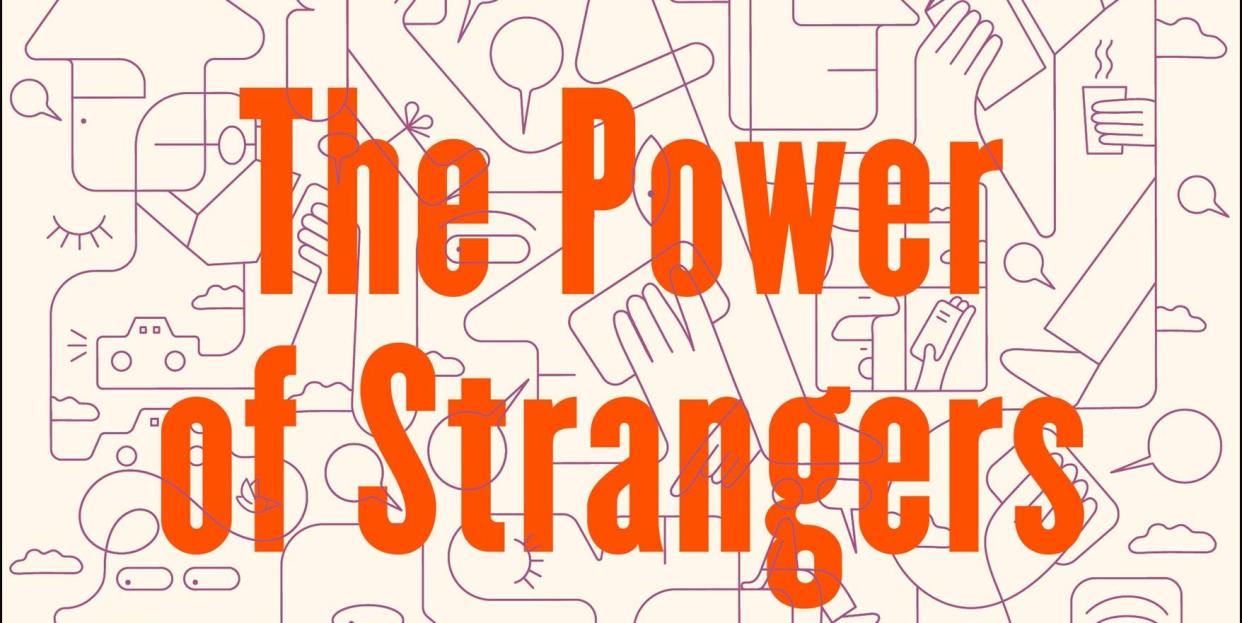Why You Should Talk to Strangers

It’s no surprise that “strangers” have a bad rap. As kids, we’re taught to steer clear of them, and as adults we tend to think of them as vaguely threatening, appearing from shadows. (Heaven knows Camus, Patricia Highsmith, and even Billy Joel have done them no favors.) In reality, of course, a stranger is just a person you don’t know—someone who could turn out to be just like you or (yes, I know what you’re thinking) someone who really, really loved The Purge. So maybe our parents were right: turn away. Why chance it? Well, Joe Keohane, former Esquire writer and editor (no stranger around here), is here to tell you that grappling with unfamiliar outsiders not only civilizes us—personally and as the human race—but that it just might be the key to our survival. Between social inequality, climate change, and a global pandemic, if there was ever a need for little help with consensus-building, it’s now.
I know: big stuff. The Power of Strangers, meticulously researched and buoyantly written, pours through the anthropological record and discovers that long before tribal bands of humans made war, and for much longer a period of time, they made peace—carefully and intentionally--not because it was easy or comfortable but out of self-interest. “We often think the worst about our species, and persistent beliefs about the supposed hatred and ultraviolence our ancient forebears directed toward strangers has left us with the impression that our nature is inherently xenophobic and that dealing peaceably with strangers is the exception, not the rule,” he writes. He quotes anthropologist Eleanor Leacock: “People were far more cosmopolitan than the term ‘tribesmen’ suggests. They moved about, traded, and negotiated, and constantly chose among the various alternatives for action.” Or, as Keohane summarizes it, “socializing was survival, and survival was socializing.” Greeting rituals, cultural traditions, and even religions flourished in service to the greater good—progress and prosperity through connection with an increasing number of strangers.
More lately, factors have converged to give us more fears than reasons to engage with strangers, despite our natural impulse to connect. Agriculture is largely to blame--land being something to defend—as well as the subsequent push toward city centers. Keohane examines these issues within the context of overwhelming psychological research demonstrating that when we do connect with strangers, we like it, we value it, and want to do it again. And it turns out there are many people and groups that can’t wait to sit with just about anyone (who knew?) and have a good chat—on a street corner, in a classroom, at a convention--about your life, your worldview, even (gulp) your political ideas, all free of agenda and free of conflict. Given the state we find ourselves in, talks like these can’t happen soon enough.
We’ve gotten lazy in our curiosity about each other—yes, I’m talking about the lot of us, on all sides. The Power of Strangers makes the case that we can turn it around. We’ve done it before, and we can do it again; in fact, it’s in our nature. The starting point might be as simple as turning to the person sitting next to you on a train. You’re both more likely than not to come away better, happier people. Assuming neither of you is wearing a latex pig-head mask.
You Might Also Like

